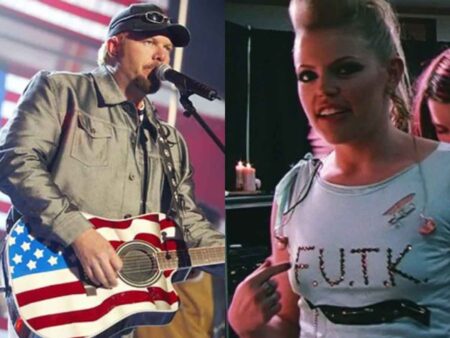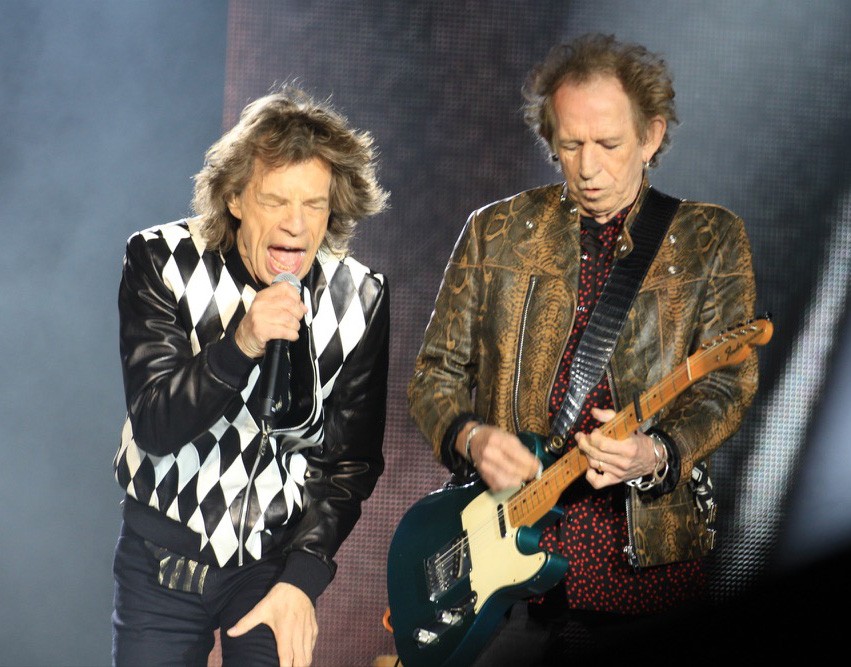For decades, “This Land Is Your Land” has been sung in schools, at political rallies, and during national celebrations. Many mistake it for a patriotic anthem, celebrating America’s beauty and unity. But its origins tell a very different story.
Written in 1940 by Woody Guthrie, the song was a protest—a response to Irving Berlin’s “God Bless America,” which dominated the airwaves at the time. As Guthrie traveled across the country, he saw the harsh realities of the Great Depression, including breadlines, migrant workers, and struggling families. To him, “God Bless America” painted an unrealistically hopeful picture of the country, ignoring the suffering of the poor and working class. His answer was “This Land Is Your Land”—a song that challenged who America truly belonged to.
Contents
A Song Born from Frustration
By the late 1930s, “God Bless America” had become an unofficial national anthem. Guthrie, who had spent years hitchhiking and riding trains across the country, saw firsthand that not all Americans felt “blessed.” He was deeply moved by the struggles of farmers, laborers, and displaced families and wanted a song that reflected their experiences.
So, in February 1940, while staying at a New York City boarding house, he penned a response. Originally titled “God Blessed America for Me,” the song was both a love letter to the American landscape and a critique of inequality.
The Controversial Verses That Were Censored
When Guthrie recorded the song in 1944, some of its most politically charged verses were left out. These lines questioned America’s class divide and addressed poverty and injustice, making it a stark contrast to the patriotic sing-along many believe it to be today.
One omitted verse referenced economic inequality:
“One bright sunny morning in the shadow of the steeple,
By the relief office I saw my people.
As they stood hungry, I stood there wondering,
If God blessed America for me.”
Another criticized private land ownership:
“As I went walking, I saw a sign there,
And on the sign it said, ‘No Trespassing.’
But on the other side, it didn’t say nothing,
That side was made for you and me.”
Guthrie’s producers feared these verses were too radical. The song was shelved for years, and when it was finally released, it was stripped of its sharpest social commentary.
It wasn’t until after Guthrie’s death that his daughter, Nora Guthrie, rediscovered the original lyrics and shared them with the world. This revelation reshaped how people understood the song, proving that it was always meant as a protest—not blind patriotism.
The Song’s Role in Protest Movements
Though the censored version became widely accepted, the song’s true meaning was never lost. Over the years, “This Land Is Your Land” has been reclaimed by activists, protesters, and marginalized communities as a song of resistance.
Civil Rights Movement (1960s): Folk singers like Pete Seeger and Joan Baez revived the song at rallies and marches, using it as a call for racial and economic justice.
Occupy Wall Street (2011): Protesters sang it in Zuccotti Park to challenge corporate greed and wealth inequality.
Immigration Rights Protests: The song has been used at demonstrations, often with modified lyrics emphasizing the question: who does this land really belong to?
Woody Guthrie: The Voice of the People
Born in Okemah, Oklahoma, in 1912, Guthrie grew up in a family that struggled with financial ruin. After his mother was institutionalized for Huntington’s disease, he took to the road as a teenager, busking for spare change and documenting the hardships of ordinary people through song.
His experiences shaped his deep distrust of capitalism and corporate power. He became known as a “dust bowl troubadour,” writing songs about the plight of workers and the poor.
Guthrie viewed music as a weapon, famously painting the words “THIS MACHINE KILLS FASCISTS” on his guitar.
An Enduring Legacy
Although Guthrie died in 1967 from Huntington’s disease, his influence lives on. Musicians like Bruce Springsteen and Bob Dylan have carried on his tradition of music as protest.
In 2009, Pete Seeger and Bruce Springsteen performed “This Land Is Your Land”—including the censored verses—at President Barack Obama’s inaugural celebration, a moment that brought Guthrie’s original vision back into the spotlight.
Today, the song continues to be performed both as a celebration of America’s beauty and as a critique of its unfulfilled promises. It remains a reminder that the fight for equality, justice, and economic fairness is ongoing.
You can hear the song here:



